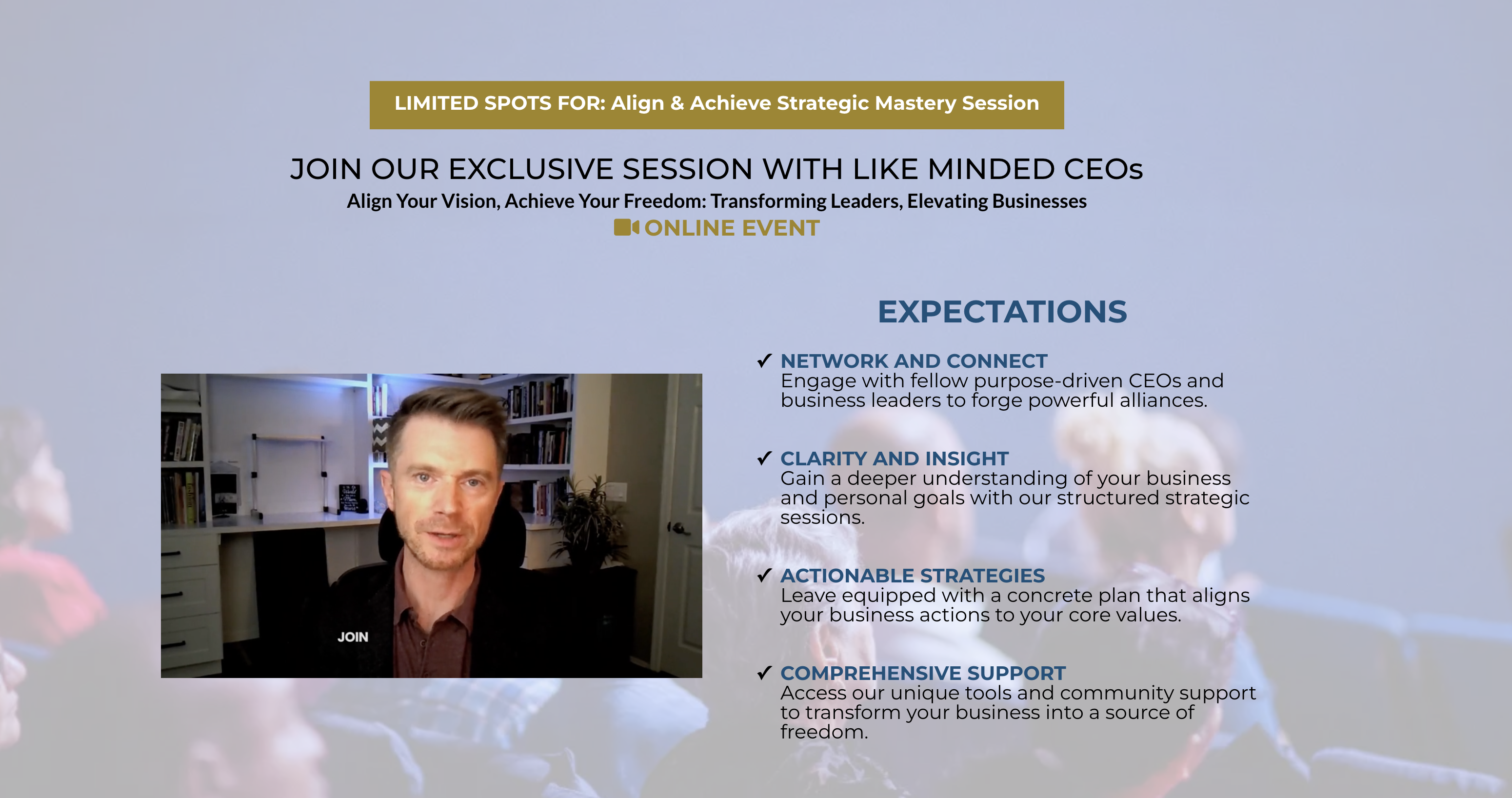Imagine a world where unseen forces subtly influence your decisions, thoughts, and moves. Welcome to the dark underbelly of Neuro-Linguistic Programming (NLP). Touted as a revolutionary tool for personal and professional development, NLP promises to unlock the secrets of success, but beneath its glossy surface lies a murky realm of manipulation and control.
For CEOs and executives like you, understanding the true nature of NLP isn’t just a curiosity—it’s a necessity. In the high-stakes leadership game, knowing the tools and tactics to shape minds and steer decisions can mean the difference between ethical influence and unethical manipulation.
In this article, we’ll delve into the shadowy side of NLP, unmasking the dangers that lurk behind its promises. We’ll explore how these techniques can be used to control and manipulate and why you must recognize and guard against them. As a leader, your integrity is your greatest asset, and by the end of this piece, you’ll be equipped to lead with a clear mind and a steadfast commitment to ethical practices.
So buckle up because we’re about to expose the dark secrets behind mind control tactics they don’t want you to know. Let’s dive into the unsettling truths of NLP and arm ourselves with the knowledge to navigate this controversial territory.
The Myth of Success
When it comes to NLP, the success stories are legendary. You’ve probably heard the tales: transforming lives, skyrocketing careers, and turning everyday Joes into charismatic leaders. But let’s peel back the curtain and laugh at the absurdity of some of these myths, shall we?
Myth #1: NLP is a Magic Bullet for Success
Cue the mystical music. Here’s the deal: NLP is often sold as the ultimate secret weapon that can solve all your problems instantly. Need to close a deal? Boom, NLP. Want to charm an audience? Bam, NLP. This myth is about as believable as a snake oil salesman promising eternal youth.
Reality Check: Success requires hard work, strategy, and, yes, a bit of luck. NLP might provide some useful techniques, but there’s no shortcut to the top. Thinking NLP alone will get you there is like believing a gym membership will get you fit while you sit on the couch eating donuts.
“Success is not final, failure is not fatal: It is the courage to continue that counts.”
Winston Churchill
Myth #2: NLP Can Make Anyone a Master Persuader
Imagine a world where every CEO could hypnotize their board with a flick of the wrist and a few well-chosen words. Sounds like something out of a bad sci-fi movie, right? Yet, this is precisely what some NLP proponents would have you believe.
Reality Check: Persuasion is an art form that takes years to master, and it’s rooted in authenticity and trust. If you think NLP alone can turn you into a silver-tongued devil, think again. Authenticity can’t be faked, no matter how many NLP tricks you have up your sleeve.
“Integrity is doing the right thing, even when no one is watching.”
C.S. Lewis
Myth #3: NLP is Scientifically Proven and Universally Effective
We’ve all seen those fancy charts and graphs purporting to show how NLP rewires your brain for success. They look convincing, don’t they? Well, as they say, there are lies, damned lies, and statistics.
Reality Check: The scientific community remains skeptical about NLP’s efficacy. Much of the evidence supporting NLP is anecdotal at best and dubious at worst. Believing in NLP’s universal effectiveness is like betting your company’s future on a horoscope—entertaining but not exactly reliable.
“Your true success in life begins only when you make the commitment to become excellent at what you do.”
Brian Tracy
Myth #4: NLP is Purely Positive and Harmless
Here’s a real kicker: the idea that NLP is all sunshine and rainbows with no downside whatsoever. According to this myth, NLP is a feel-good, consequence-free path to personal and professional nirvana.
Reality Check: Like any powerful tool, NLP can be misused. It can be wielded to manipulate, deceive, and control. Those who fail to recognize this dark side risk becoming puppets to more unscrupulous practitioners. It’s like giving a toddler a chainsaw—what could go wrong?
“Ethics is knowing the difference between what you have a right to do and what is right to do.”
Potter Stewart
Myth #5: Anyone Can Master NLP Instantly
Some NLP courses promise mastery in a weekend workshop. Just imagine: you walk in on Friday as an ordinary executive and strut out on Sunday as a mind-bending Jedi. Spoiler alert: reality doesn’t work that way.
Reality Check: Mastery any skill takes time, practice, and dedication. Instant proficiency in NLP is a myth perpetuated by those looking to sell you a quick fix. It’s the business equivalent of expecting to become a concert pianist after one lesson.
“In the middle of every difficulty lies opportunity.” — Albert Einstein
By debunking these myths, we not only expose the fallacies but also highlight the importance of understanding the true nature of NLP. As a leader, you must approach NLP with a critical mind and a healthy dose of skepticism. Recognize its potential benefits but remain vigilant about its darker applications. Remember, success is a journey, not a magic trick.
RAMS Framework Overview
Alright, let’s cut through the fluff and dive into something that works—the RAMS framework. You see, while some folks are busy trying to sell you snake oil, we’ve got a solid, no-nonsense approach to high-performance coaching. RAMS stands for Results, Attitude, Mastery, and Systems. Let’s break it down and have some fun while we’re at it.
Results: The End Game
Results are king, right? In the world of CEOs and high-stakes decision-making, it’s all about what you deliver at the end of the day. Think of Results as your scoreboard—it’s not about how many times you swing the bat, but how many home runs you hit.
In the Context of NLP: Sure, NLP might promise quick wins, but where are the sustainable results? RAMS focuses on long-term achievements. It’s like comparing a sugar rush to a balanced diet—one gives you a quick high and a nasty crash, and the other sustains you for the long haul.
Picture NLP as that flashy diet pill everyone swears by, but RAMS is the personal trainer who gets you in shape—without the funky side effects.
Attitude: The Secret Sauce
Your mindset—or, as I like to call it, your mind state—is crucial. It’s the lens through which you view challenges and opportunities. We’re not talking about plastering a fake smile on your face but about cultivating a genuinely positive and resilient attitude.
In the context of NLP, NLP enthusiasts might tell you to “fake it till you make it,” but with RAMS, it’s about authentic transformation—no gimmicks, just real shifts in how you approach life and business.
NLP’s attitude advice is like putting lipstick on a pig. RAMS? We’re giving you a new breed of thoroughbred to run the race.
Mastery: The Continuous Climb
Mastery isn’t about being perfect; it’s about relentless improvement. It’s the commitment to improving daily, honing your skills, and expanding your knowledge.
In the Context of NLP: While NLP may offer shiny new tricks, RAMS is about deep, sustained learning. It’s like comparing a magic show to a lifetime of martial arts training. One dazzles momentarily; the other builds unshakable strength.
NLP is like buying a Swiss Army knife—you get a lot of little tools. RAMS is enrolling in ninja school—now, that’s mastery.
Systems: The Backbone of Success
Systems are the structures and processes that keep everything running smoothly. They’re the gears and cogs behind the scenes, ensuring that your efforts translate into consistent results.
In the Context of NLP: NLP often lacks a structured approach, leaning more on ad-hoc techniques. RAMS provides a robust framework that supports sustainable success. Think of it as the difference between a rickety shack and a well-engineered skyscraper.
NLP is like trying to build IKEA furniture without a manual, which is frustrating and prone to collapse. RAMS gives you the blueprint, the tools, and a hand if needed.
So, why RAMS? Because it’s not about quick fixes or smoke and mirrors. It’s about real, tangible, and sustainable growth. As a driven CEO, you need more than flashy techniques—a framework that delivers consistent, meaningful results. That’s RAMS for you: grounded, effective, and much more reliable than a bag of NLP tricks.
Real-Life Success Stories
Let’s bring this home with real-life tales of triumph, where the RAMS framework has turned ambitious dreams into tangible realities. These stories aren’t just about hitting goals but about redefining what’s possible.
Case Study 1: Sarah, The Trailblazing Tech CEO
Background: Meet Sarah, a tech CEO grappling with rapid growth and a fragmented team. Her company had innovative products but lacked cohesive leadership. Enter RAMS.
Challenge: Sarah struggled to align her executive team and make strategic decisions that could keep pace with the company’s explosive growth. The typical quick-fix solutions and motivational seminars weren’t cutting it.
Transformation: With the RAMS framework, Sarah focused on:
- Results: Setting clear, measurable objectives for her team.
- Attitude: Cultivating a growth mind state across her organization.
- Mastery: Implementing continuous learning programs.
- Systems: Establishing robust operational processes.
Outcome: Within six months, Sarah’s company saw a 50% increase in productivity, a marked improvement in team cohesion, and a 30% uptick in revenue. Her leadership style evolved, making her a more confident and strategic thinker.
Relatable Hook: Imagine going from daily firefighting to leading with clarity and purpose. That’s the power of RAMS.
Case Study 2: Mike, The Manufacturing Maestro
Background: Mike was the CEO of a mid-sized manufacturing firm. Overwhelmed by the day-to-day operational grind, he was unable to focus on strategic growth. He felt stuck in a loop, unable to push his company to the next level.
Challenge: Delegation was a significant issue. Mike was involved in every detail, leaving him exhausted and unable to see the bigger picture.
Transformation: Through the RAMS framework, Mike learned to:
- Results: Prioritize high-impact projects.
- Attitude: Shift from a control mindset to a trust-based leadership approach.
- Mastery: Invest in training his managers to take on more responsibility.
- Systems: Streamline operations with efficient processes.
Outcome: In just a year, Mike’s firm expanded into new markets, increasing revenue by 40%. He also regained his work-life balance, finding time for his family and personal interests.
Think about transforming from a stressed-out manager to a visionary leader. That’s the RAMS effect.
Case Study 3: Emily, The Creative Visionary
Background: Emily, a creative director at a leading advertising agency, was brilliant but chaotic. Her team adored her vision but struggled with the lack of structure, leading to missed deadlines and burnout.
Challenge: Emily needed to harness her creativity within a structured framework to maintain the agency’s competitive edge without burning out her team.
Transformation: With RAMS, Emily embraced:
- Results: Defining clear project milestones.
- Attitude: Fostering a collaborative and positive team environment.
- Mastery: Balancing creative freedom with disciplined project management.
- Systems: Implementing agile methodologies to improve workflow.
Outcome: The agency’s project completion rate improved by 60%, client satisfaction soared, and Emily’s team found a new sense of purpose and balance.
Imagine channeling your creative chaos into streamlined success. That’s the magic of RAMS.
These stories aren’t just inspiring—they prove that the RAMS framework can transform challenges into opportunities. Whether you’re a tech innovator, a manufacturing mogul, or a creative genius, RAMS offers a tailored approach to elevate your game. It’s not about temporary fixes; it’s about building a sustainable path to extraordinary success.
“The greatest leader is not necessarily the one who does the greatest things. He is the one that gets the people to do the greatest things.”
Ronald Reagan
The Controversial Side of NLP
Alright, folks, it’s time to pull no punches and dive headfirst into the murky waters of NLP. Neuro-Linguistic Programming has been touted as a miracle tool for personal development and communication mastery, but let’s get real—it’s not all rainbows and unicorns. Here’s the bold, unvarnished truth about the dark side of NLP.
Mind Manipulation: The Puppet Master’s Toolkit
Let’s start with the obvious: NLP can be a powerful tool for manipulation. Techniques like anchoring, mirroring, and pacing are designed to influence others’ thoughts and behaviors subtly. In the hands of an ethical practitioner, these can be beneficial. But let’s face it: not everyone out there is playing fair.
Imagine giving a con artist a blueprint to your mind. That’s what unethical NLP practitioners can do—exploit your subconscious to get what they want. It’s the psychological equivalent of handing over your house keys to a burglar.
“Leadership is not about being in charge. It is about taking care of those in your charge.”
Simon Sinek
Pseudoscience: The Flimsy Foundation
NLP proponents often cloak their techniques in scientific jargon, but much of NLP lacks empirical support. The scientific community remains skeptical mainly, with many studies debunking its effectiveness.
Believing in NLP’s grand promises is like investing in snake oil. You might feel good for a while, but there’s no solid foundation. It’s time to separate the hype from the hard facts.
Unethical Use in Business: The Corporate Snake Pit
In the business world, NLP can be a double-edged sword. Used ethically, it can improve communication and negotiation skills. However, in the wrong hands, it becomes a weapon for manipulation, coercing colleagues, clients, and competitors.
Picture this: your business partner is subtly steering every decision to benefit themselves, using NLP tricks. It’s not just unethical—it’s downright sinister. No one likes to think they’re being played, especially in high-stakes environments.
Psychological Harm: The Invisible Scars
NLP can also cause psychological harm. The techniques can be intense and, when misused, lead to emotional distress. Untrained or unethical practitioners might push individuals to confront past traumas without proper support, causing more harm than good.
Imagine reopening old wounds and being left to bleed. That’s what irresponsible NLP practices can do. It’s not just about “fixing” someone; it’s about ensuring their mental well-being.
The Cult of Personality: Guru Worship
The world of NLP is often littered with self-proclaimed gurus who promise the world but deliver little. These charismatic leaders can create a cult-like following, with followers hanging on their every word, often at great personal and financial expense.
Beware of the NLP messiah complex. These gurus are more interested in filling their coffers than helping you grow. It’s high time we called out this snake oil salesmanship for what it is.
Transparency and ethics are non-negotiable in high-performance coaching and personal development. RAMS by Baz stands apart because its framework is built on authenticity, measurable results, and a steadfast commitment to ethical practices.
So, as you navigate the seductive allure of NLP, keep your wits about you. Recognize its potential for manipulation, question its scientific validity, and demand ethical integrity. The real path to success isn’t through shortcuts and psychological tricks—it’s through genuine growth, continuous learning, and steadfast ethical practices.
“Do not follow where the path may lead. Go instead where there is no path and leave a trail.”
Ralph Waldo Emerson
Actionable Steps for the Reader
Now that we’ve peeled back the layers on NLP and highlighted the RAMS framework, it’s time to arm you with practical, actionable steps. These will help you navigate the murky waters of NLP, enhance your leadership skills, and build a more ethical and effective approach to personal and professional growth.
- Educate Yourself on NLP Techniques
Action: Spend time understanding the common NLP techniques like anchoring, mirroring, and pacing. Know what they are and how they are used.
Think of it as learning the magician’s tricks so you won’t be amazed by smoke and mirrors. Knowledge is your first line of defense.
“In the middle of every difficulty lies opportunity.”
Albert Einstein
- Identify Manipulative Behavior
Action: Look for signs of manipulation. If someone’s communication feels overly rehearsed or if you feel unusually influenced by their words, you might be dealing with NLP tactics.
It’s like spotting a sales pitch a mile away—you won’t be easily swayed once you know the signs.
- Cultivate a Growth Mind State
Action: Focus on developing a genuine positive attitude. Use affirmations, mindfulness, and reflection to maintain a resilient and growth-oriented mind state.
It’s not about faking it till you make it; it’s about genuinely believing in your ability to grow and succeed. Authenticity is your superpower.
- Build Robust Systems
Action: Implement structured processes in your personal and professional life. Use tools and frameworks that support your goals and ensure consistent progress.
Think of it as setting up a solid foundation for your house—without it, everything else crumbles.
- Engage in Continuous Learning
Action: Dedicate time each week to learning and self-improvement. This could be through reading, online courses, or leadership and personal development workshops.
Lifelong learning isn’t just a buzzword; it’s the secret sauce to staying ahead of the curve. Stay curious and keep evolving.
- Foster Ethical Leadership
Action: Commit to ethical leadership practices. Be transparent, build trust, and prioritize your team’s and stakeholders’ well-being.
Lead like you would want to be led. Ethical leadership isn’t just good practice—it’s good business.
“Ethics is knowing the difference between what you have a right to do and what is right to do.”
Potter Stewart
- Leverage the RAMS Framework
Action: Apply the RAMS framework to your leadership approach. Focus on Results, maintain a positive attitude, strive for Mastery, and build effective Systems.
Relatable Hook: RAMS isn’t just a framework; it’s a game-changer. Think of it as your secret weapon for achieving sustained success.
By taking these actionable steps, you’re not just protecting yourself from the potential pitfalls of NLP—you’re actively enhancing your leadership capabilities and setting yourself up for long-term success. Remember, the key to true growth and success lies in continuous improvement, ethical practices, and a genuine commitment to your personal and professional development.
Conclusion
As we’ve navigated the dark and twisty alleys of NLP, it’s clear that while it promises much, it also conceals many potential pitfalls. From the potential for manipulation to the lack of solid scientific backing, the dark side of NLP is a reality that savvy leaders like you must recognize and navigate.
But here’s the good news: you’re not alone in this journey. With the RAMS framework—focusing on Results, Attitude, Mastery, and Systems—you have a robust, ethical, and proven alternative to achieve your leadership goals and personal growth. It’s about genuine transformation, not just quick fixes. It’s about building a legacy of integrity, continuous improvement, and sustainable success.
So, as you reflect on the insights shared in this article, ask yourself: Are you ready to elevate your leadership to the next level? Are you prepared to embrace a framework that promises not just success but sustained excellence?
Call to Action: The Adventure Call
Your journey towards extraordinary leadership and unmatched personal growth starts with a single step. Join the visionary leaders who have transformed their lives and businesses with RAMS by Baz.
Take the leap today. Schedule your personalized business consultation—The Adventure Call.
Click here to embark on your adventure. Together, we’ll map out a strategy tailored to your unique challenges and aspirations, ensuring that you meet and exceed your goals.
Don’t settle for mediocrity. Dare to be exceptional. Your legacy begins now.



















